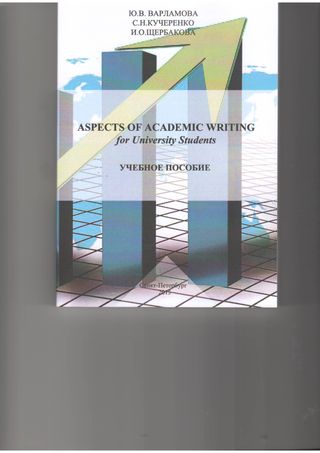?
Aspects of Academic Writing for University Students
Aspects of Academic Writing is primarily designed to lead university students to success with academic writing and prepare for further study and world of work. The students are trained to organize, present and compare data, describe process, present and justify an opinion, evaluate and challenge ideas, compare and contrast evidence. The book is either focused on developing students’ academic writing skills; develops the students’ active vocabulary by practicing systems of vocabulary, such as word formation, collocation, phrasal verbs and dependent prepositions; revises and extends the students’ active knowledge of grammar through varied activities, offering opportunities for recycling, revision, evaluation and self-evaluation. Throughout the book there are examples to follow and exercises to complete, so students can easily select the particular section to practice based on their specific needs. In all, the book can be used in the classroom by teachers of English for Academic Purposes as part of a wider course. However, the book may be either used as self-study.
